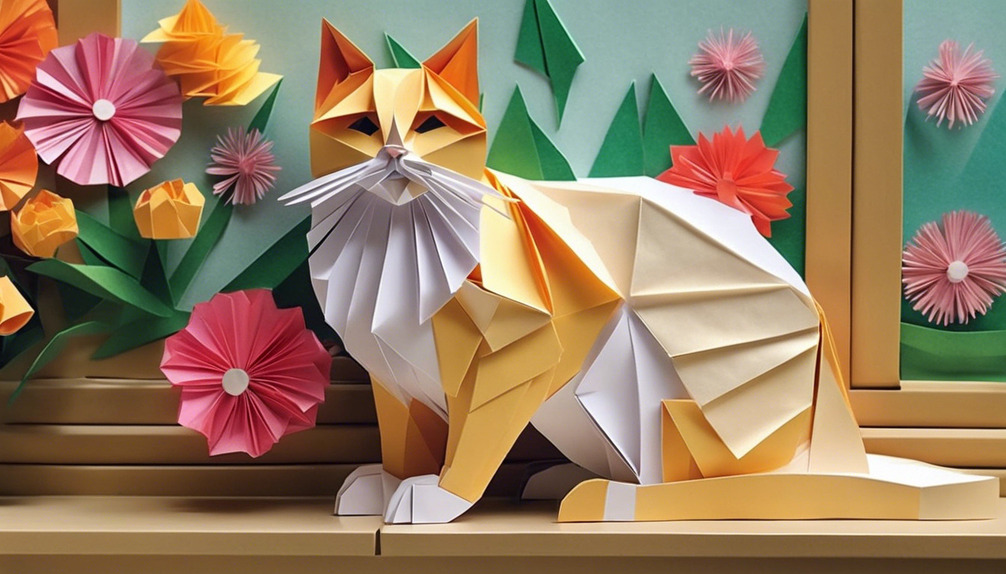As beloved senior cats age, it’s common to notice a decline in their grooming habits. They may struggle to keep their fur as tidy as it once was, leading to more frequent matting or a noticeable decrease in grooming frequency. These changes can indicate the physical and health challenges that older cats often encounter.
It’s essential to understand the unique grooming needs of senior felines and the importance of providing them with special care tailored to their age-related changes. By addressing these needs, you can ensure that your aging cat remains comfortable, healthy, and content.
Key Takeaways
- Regular grooming is crucial for maintaining the health of senior cats.
- Older cats may have physical difficulties that require special care during grooming.
- Decreased grooming in senior cats is common and may indicate underlying health issues.
- Proper grooming can help prevent and address age-related ailments in older cats.
Understanding Senior Cat Grooming Needs
As your beloved cat enters their senior years, it’s crucial to understand their unique grooming needs and provide them with the special care they require to maintain their health and well-being.
Older cats experience age-related changes, and it’s important to recognize that 1 cat year isn’t equivalent to 7 human years. Regular grooming is essential for monitoring and maintaining the health of senior cats. This includes addressing physical changes and grooming needs that may arise as they age.
Special care is crucial for grooming older cats due to physical difficulties, decreased grooming, and managing conditions like arthritis. When grooming senior cats, it’s important to make the experience as pleasant as possible, use softer brushes, and trim their nails monthly.
Regular veterinary appointments are crucial for senior cats to catch potential health issues early and create effective treatment plans.
Importance of Regular Brushing
Regularly brushing your older cat’s fur is crucial for maintaining their skin and coat health and preventing mats and tangles. As cats age, their grooming habits may change, and they may struggle to keep themselves as tidy as they once did. By brushing or combing your senior cat’s fur, you remove loose hair and distribute skin oils, which helps to prevent skin irritation and maintain a healthy coat. This also stimulates circulation, keeping your cat’s skin in good condition.
When brushing your cat, it’s an excellent opportunity to check for any abnormal lumps, bumps, or skin conditions that may require attention from a regular veterinary check-up. Using grooming brushes with softer bristles is essential for the comfort of older cats, as their skin becomes more sensitive with age.
Regular brushing not only helps reduce shedding but also minimizes the formation of hairballs, contributing to your older cat’s overall well-being. Remember, regular grooming is an act of love and care that can significantly benefit your beloved senior cat.
Managing Matted Fur in Older Cats
Is your older cat struggling with matted fur? It can be challenging to manage with their delicate skin.
But with gentle brushing techniques, a regular grooming schedule, and professional grooming assistance, you can help your older cat stay comfortable and mat-free.
Gentle Brushing Techniques
To gently manage matted fur in older cats, use a soft-bristled brush to carefully work through tangles and knots without causing discomfort. As cats age, their grooming needs change, and they may develop matted fur that requires special attention. Gentle brushing techniques are essential to ensure the comfort and well-being of elderly cats during grooming. When combing out matted fur, it’s important to approach the task with patience and tenderness.
Here are some tips for gently managing matted fur in older cats:
| Gentle Brushing Techniques | Tips for Effective Grooming |
|---|---|
| Use a soft-bristled brush | Be patient and gentle |
| Work through tangles carefully | Use short, gentle strokes |
| Remove loose hairs | Avoid pulling or tugging |
| Offer treats and reassurance | Take breaks when needed |
Regular Grooming Schedule
When managing matted fur in older cats, it’s crucial to establish a consistent grooming schedule to ensure their comfort and well-being.
Regular grooming is essential for maintaining the health and happiness of older cats, as they may struggle to groom themselves effectively.
By sticking to a regular grooming routine, you can prevent matted fur, which can lead to discomfort, skin issues, and pain in older cats.
Make the grooming sessions as comfortable and calming as possible for your older cat, and seek assistance from a professional groomer or veterinarian when needed.
Your older cat’s well-being is our top priority, and by maintaining a regular grooming schedule, you can address potential health concerns and ensure that they continue to enjoy a high quality of life.
Professional Grooming Assistance
Seeking professional grooming assistance for your older cat’s matted fur is crucial to prevent potential skin issues and ensure their comfort. Professional groomers or veterinarians have the expertise to provide proper grooming techniques suitable for delicate older cat skin. Improper grooming techniques can lead to injuries, so it’s essential to seek expert help for matted fur in senior cats.
Regular grooming assistance is crucial for older cats those with mobility issues or arthritis. Professional groomers can assess and address matted fur safely, preventing discomfort and skin problems in older cats.
- Professional groomers or veterinarians have the expertise to provide proper grooming techniques for delicate older cat skin.
- Improper grooming techniques can lead to injuries, so it’s essential to seek expert help for matted fur in senior cats.
- Regular grooming assistance is crucial for older cats, especially those with mobility issues or arthritis.
- Professional groomers can assess and address matted fur safely, preventing discomfort and skin problems in older cats.
Addressing Behavioral Changes in Senior Cats
As your senior cat ages, it’s important to be attentive to any behavioral changes that may indicate evolving needs and adjustments in their care.
Behavioral changes in senior cats are common due to age-related physical and sensory changes. You may notice signs such as decreased interest in grooming, reduced appetite, and increased vocalization. These changes could be indicative of underlying health issues, so regular veterinary check-ups every six months are crucial to detect and address any potential problems.
When addressing grooming, special care is essential. Regular brushing and nail trimming are important, and seeking professional assistance for matted fur can prevent discomfort for your senior cat.
Providing a comfortable environment, encouraging mental stimulation, and ensuring proper nutrition and hydration are essential for their overall well-being.
It’s important to approach these changes with empathy and understanding, as your senior cat may require extra attention and care during this stage of their life.
As your cat gets older, you want to make sure they stay healthy and comfortable.
Joint health, dental care, and weight management are essential for preventing common age-related ailments.
Joint Health
Regular veterinary check-ups every 6 months can help prevent joint health issues in your older cat. It’s essential to prioritize your senior cat’s joint health to ensure a good quality of life. Here are some ways you can help maintain your older cat’s joint health:
- Discuss joint supplements and pain medicine with a veterinarian to manage arthritis in senior cats.
- Make grooming a pleasant experience with petting and verbal praise, which can be beneficial for senior cats with joint issues.
- Ensure regular vet appointments for exams, bloodwork, and blood pressure monitoring to manage joint health in senior cats.
- Properly groom matted fur in senior cats, which may require assistance from a groomer or veterinarian.
Dental Care
To ensure your older cat’s dental health remains in top condition, regular checks for dental disease, growths, or reddened gums are essential.
As cats age, they become more susceptible to dental problems such as periodontal disease and tooth decay. These issues can lead to discomfort, difficulty eating, and even serious health concerns if left untreated.
By incorporating gentle brushing and regular dental check-ups into your grooming routine, you can help prevent common age-related dental ailments in your beloved cat.
A balanced diet and dental treats designed to promote oral health can contribute to maintaining your older cat’s dental well-being.
Your attentive care and consideration for your cat’s dental needs are crucial in providing them with a comfortable and healthy life in their senior years.
Weight Management
Managing your older cat’s weight is essential for preventing common age-related ailments. Here’s how you can ensure effective weight management for your beloved cat:
- Preventing obesity and maintaining a healthy weight is crucial for preventing age-related health issues in older cats.
- Regular exercise and a balanced diet tailored to the cat’s age and health status are essential for weight management in older cats.
- Consult with a veterinarian to determine the appropriate portion size and type of food for your older cat to maintain a healthy weight.
- Keep a close eye on your older cat’s weight and body condition, and make adjustments to their diet and exercise routine as needed to manage their weight.
Tips for Grooming Elderly Cats
As your beloved elderly cat ages, ensuring their grooming routine remains a positive and comfortable experience is essential for their well-being. With age, cats may become less flexible and experience behavior changes, making grooming a potentially stressful experience.
To make grooming more pleasant, use calm and soothing tones during grooming sessions, and incorporate petting and verbal praise to reassure your cat. Regular brushing is crucial to prevent mats from forming in their fur, so consider using a grooming brush with softer bristles to avoid discomfort.
Trimming your cat’s nails monthly can prevent painful ingrown nails and make walking more comfortable for them. Always monitor your cat’s body language and reactions during grooming, and if they seem distressed, take a break and approach the grooming process gently.
Special Considerations for Senior Cat Dental Care
Considering the potential challenges of senior cat dental care, it’s important to be proactive in monitoring and addressing your aging cat’s oral health. As your senior cat ages, special care for their dental health becomes essential.
Here are some key considerations for senior cat dental care:
- Increased Susceptibility to Dental Disease: Aging cats are more prone to dental issues, which can lead to eating difficulties and pain.
- Monitoring for Dental Disease: Keep an eye out for signs of dental problems such as bad breath, difficulty eating, and red or swollen gums.
- Importance of Regular Check-Ups: Regular dental check-ups and professional cleanings are increasingly important for senior cats to maintain their oral health.
- Specialized Dental Care: Consider providing dental chews or specialized dental diets for senior cats to help prevent dental issues.
Your senior cat’s dental care requires special attention and proactive measures. It’s crucial to consult with a veterinarian for tailored dental care recommendations that suit your aging cat’s individual needs. By staying vigilant and taking these proactive steps, you can ensure that your senior cat maintains good oral health and overall well-being.
Creating an Elderly Cat-Friendly Environment
Ensure your elderly cat has a comfortable and accessible living environment by providing warm resting places, easy-to-reach food and water bowls, and accommodations for reduced mobility.
As cats age, they may experience decreased mobility and joint pain. It’s essential to create an elderly cat-friendly environment that caters to their specific needs. Install warm and draft-free resting places to help soothe their joints and provide a cozy space for relaxation. Consider placing litter boxes on every floor and opting for low-sided options to assist cats with reduced mobility.
Ensure easy access to food and water bowls in multiple locations throughout your home. You can also use steps, ramps, or pet stairs to help your aging cat reach their favorite elevated spots. For elderly cats with impaired vision or hearing, maintain a consistent environment and approach them from the front to prevent startling.
Frequently Asked Questions
Do Senior Cats Need Special Care?
As your cat ages, special care becomes crucial. Their needs change, and regular grooming is essential. Brush gently, trim nails, and monitor for any signs of discomfort. Your senior cat requires your attentive care now more than ever.
What Are Elderly Cats Special Considerations?
As your cat ages, special grooming considerations become essential. Their decreased grooming effectiveness, overgrown claws, and potential health issues like arthritis require more frequent grooming. Monitoring for signs of health problems is crucial for their well-being.
Can Cats Be Too Old to Be Groomed?
Yes, older cats can still be groomed. It’s crucial to consider their specific needs, like managing arthritis and using gentle techniques. Regular veterinary care is essential for maintaining their health as they age.
Why Do Older Cats Stop Grooming Themselves?
As older cats age, they may stop grooming themselves due to physical discomfort, like how a tired hiker might struggle to tie their shoes. Offering gentle grooming assistance and addressing any underlying health issues can make a world of difference.




